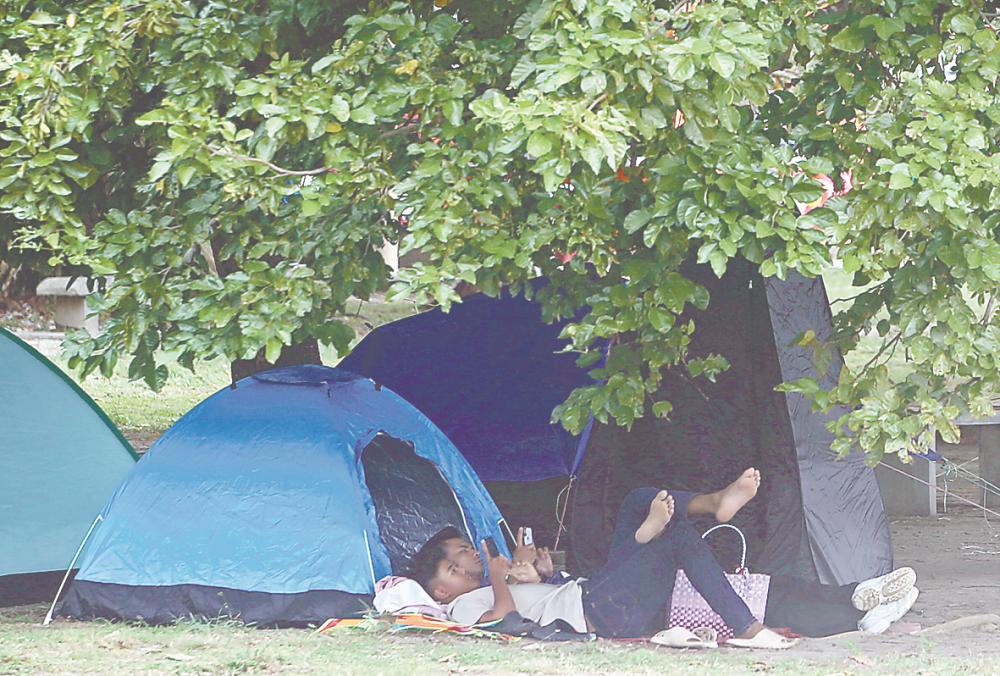PETALING JAYA: The recent enforcement of a no-camping policy on Port Dickson beaches has ignited public debate about
its implications on tourism and the local economy.
While the Port Dickson Municipal Council emphasised environmental preservation, citing issues such as littering, improper waste disposal and habitat destruction caused by unregulated camping, tourism experts argued that the ban could deter tourists and harm local businesses.
Universiti Teknologi Mara tourism economics expert Prof Dr Mohd Hafiz Hanafiah said the outright prohibition prioritises environmental preservation at the expense of tourism flexibility.
“Such strict bans may not strike the best balance. Other destinations have adopted regulated camping to allow for environmental preservation while still accommodating tourists,” he said.
Hafiz warned that the policy could hurt Port Dickson’s reputation as a family and budget-friendly beach destination.
“If the rule remains rigid, tourists may seek alternative locations with more relaxed regulations.
“Malaysia risks losing its competitiveness as a coastal tourism destination compared with neighbours like Thailand and Indonesia. Over time, this could shift economic benefits elsewhere.”
Hafiz said local businesses, including food vendors, tent rental operators and accommodation providers are already feeling the pinch. The expected lower foot traffic from budget travellers due to the decision can impact sales and occupancy rates, causing financial losses for local entrepreneurs.
He said backlash on social media, with some calling for a boycott of Port Dickson, further threatens its tourism appeal.
“Viral campaigns in today’s digital era can significantly impact visitor numbers. This sentiment could push potential tourists to other destinations.”
Hafiz suggested the authorities consider alternatives, such as designated camping zones with proper waste management and permit systems to balance tourism and sustainability.
YouTube channel FWFamily Camping content creator Norshazwani Nasaruddin said the no-camping enforcement could discourage first-timers from experiencing outdoor activities.
“Without accessible and welcoming options such as beach camping, many might miss the chance to explore Malaysia’s beautiful natural landscapes.”
Norshazwani said there is a surge of interest in camping among Malaysians, which is fuelled by several factors, including
social media.
“Platforms such as YouTube and Instagram inspire more people to explore outdoor activities. Camping is also an affordable alternative to conventional vacations, especially for families on a budget.”
She said the rise in affordable camping gear has made it easier for Malaysians to enjoy outdoor adventures without high costs, and that such affordability is the reason more families are now turning to camping as an alternative to expensive vacations.
Norshazwani said camping allows families to bond while connecting with nature, making it a popular choice.
As an active member of the Naturehike Outdoor Camping Malaysia community, she has witnessed the enthusiasm for camping firsthand.
“It’s one of the biggest camping communities in the country. We organise camp meets and share experiences, making camping a collective and supportive activity.”
She also said the camping community provides a sense of belonging. Being part of such a group allows enthusiasts to share knowledge, learn from one another, and make the experience more enriching.
However, she said with the ban at Port Dickson, the camping community might also feel sidelined, especially since responsible campers often advocate sustainability, so engaging with such groups could help the authorities craft more balanced policies.
She advised beginners to choose friendly campsites with basic facilities and follow the “Leave No Trace” principle.









